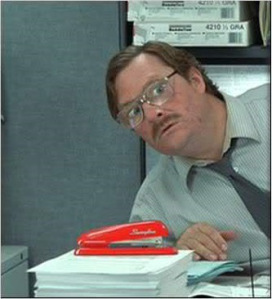“The days are long, but the years are short.”
— Gretchen Rubin
I overheard these words recently which have served as a good reflection point for me. Maybe one day I’ll choose to have them tattooed on my body (kidding, mom).
But I’m constantly reminded that life is both short and long. You have to be hyper focused on your day-to-day while also maintaining a macro-perspective regarding the long-term.
When I talk with people who are discouraged about where they’re at in their careers, their romantic lives, their physical health, etc. I have to remind them that life is a marathon, not a sprint.
Especially in your mid to late 20’s, when people are getting married, buying homes, settling down, etc. it’s easy to adopt a worldview that I’m not where I should be. But a lot of changes happen at this age, and of the same token, the worries of age 20-30 are very rarely the same concerns at age 50-60.
For example, I get asked a lot about career advice – what happens when I’m at a crossroads and I don’t know what to do next or I’m not passionate about my job?
In these instances, very rarely do I begin by suggesting steps to find something you love. Truth is, if you’re a recent college grad, you’re going to spend at least the next 5 years figuring out what you don’t want to do.
Where I begin is by reframing the circumstances and providing prospective on the timeline – your life is not over. You’re just getting started.
An objective breakdown:
Let’s run a hypothetical scenario that someone gets to retire at age 65 (lol).
In truth:
a) our retirement age will be 70+, or
b) we won’t want to retire, even at age 70+
….but let’s entertain the notion.
1) Now, subtract your graduation age from your “retirement” age number to get a depiction of how long you can expect your career to be. Let’s call this “Career Timeline”
Ex: Retirement Age (65) – Graduation Age (22) = Career timeline (43 yrs).
2) Second, subtract your Current Age from your Retirement Age. We’ll call this “Remaining Career”.
Ex: Ex: Retirement Age (65) – Current Age (27) = Remaining Career (38 yrs).
For most of my readers, this second number will land them somewhere between 30-50 years. Using the example above, this means you have another 38 years of “work” ahead of you. This can either be demoralizing or it can be encouraging, perspective is up to you.
3) Now, divide your Remaining Career by your Career Timeline and subtract that from 1. This calculates the percentage of how far along you are in your current career. We’ll call this “Percentage of Career Completed.”
Ex: 1 – (Remaining Career [38]) / Career Timeline [43] = Percentage of Career Completed (~11.6%)
Let that number sink in.
For most people my age, you’re not even a quarter of the way into your career.
Imagine if Tom Brady and the New England Patriots gave up 6 minutes into the 1st quarter of the Super Bowl. That’s the equivalent of someone saying it’s too late for me to change careers or I’m not where I’m supposed to be.
No duh – you just started.
Where we go from here
So you may hate your job and who you work for. Rethink what are the secondary skills you can take and add to your toolkit. Is it corporate communications? Building your social network? Learning to ask better questions? Very rarely are these things going to be listed on an application form, but they’re what truly matter.
Almost everything I do has some consideration for the long-term. Not everything in life has to be done this instant. And what may look like unfruitful labor for the first 5 years are actually seeds being planted that will come to full bloom in the next 10-20 years; that’s where I’m banking.
I implore you to stay both humble and hungry, to do the little things well as I always like to say. Set your goals and go after them, but know that incremental progress is ultimately what wins the day.
The days may be long and the years short, but make every one of them count.
